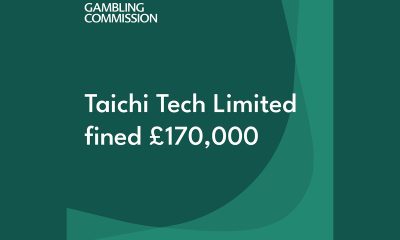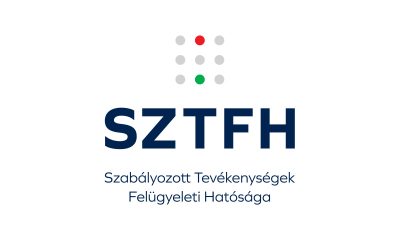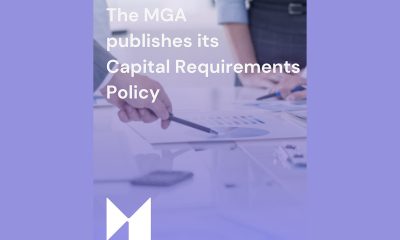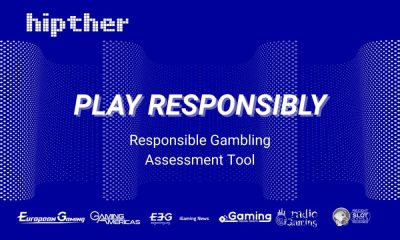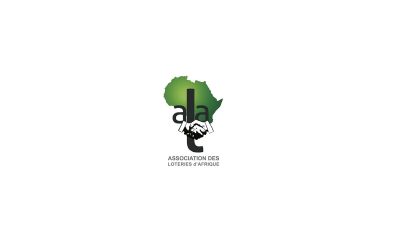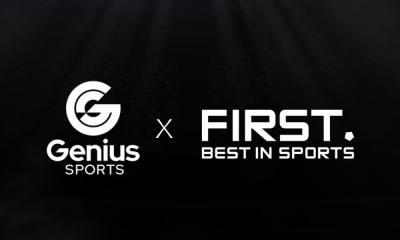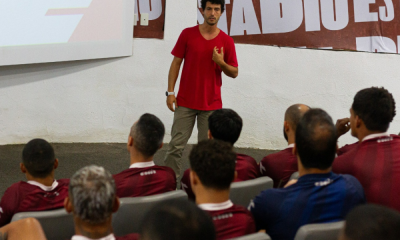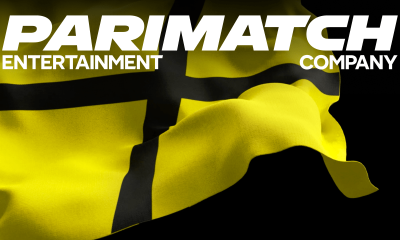Compliance Updates
Florida Targets Fantasy Sports Firms Over Possible Illegal Betting Games

Florida gambling regulators have sent cease-and-desist letters to three daily fantasy-sports operators accused of offering potentially illegal mobile betting games and threatened legal action if the sites don’t immediately stop.
Commission Executive Director Lou Trombetta sent letters warning the three companies that they “may be offering or accepting illegal bets or wagers” from Floridians and “may be promoting and conducting an illegal lottery.”
The alleged conduct is “strictly prohibited in Florida and constitutes criminal activity,” Trombetta wrote.
The letters targeted Underdog Sports, LLC, which is based in Brooklyn, N.Y; SidePrize LLC, also known as Performance Predictions LLC, doing business as PrizePicks, which is based in Atlanta; and Betr Holdings, Inc., which is based in Miami.
In fantasy sports, players can draft rosters of actual athletes, with the winners of fantasy games determined by the statistics of the athletes. Many games, like office pools, last all season.
The three companies offer what are known as “parlay-prop-style” games that could be more similar to sports-betting games that are off-limits in Florida.
“Under Florida law, betting or wagering on the result of contests of skill, such as sports betting, including fantasy sports betting, is strictly prohibited and constitutes a felony offense unless such activity is otherwise exempted by statute,” Trombetta’s letter said. “Accordingly, in Florida, sports betting may be lawfully conducted only pursuant to a gaming compact. … Further, receiving such illegal bets and wagers and aiding or abetting such criminal activities constitute separate felony offenses. … Lotteries are also strictly prohibited in Florida.”
A gaming compact is an agreement reached with the state.
The commission did not send letters to DraftKings and FanDuel, which have dominated the fantasy-sports market in the decade since the online games launched.
It was unclear Friday if the commission would crack down on other operators in the future, but emails show the gambling overseers could be casting a broad net.
“As you might imagine, my exec team asking what the letter means and seeking actionable advice, pretty urgently. Would like to discuss the substance at some point, but if you can help with one question, it would be great. Namely, Underdog operates multiple paid fantasy formats (season-long drafts, daily drafts, pick’em) and I just want to confirm my reading of the letter, which is that the legal conclusion applies to all paid fantasy contests — e.g., all of our contests — and not just particular types,” Nicholas Green, Underdog’s general counsel, wrote Friday to Ross Marshman, the commission’s general counsel.
“Your reading of the letter is correct,” Marshman replied.
John Lockwood, an attorney hired by multiple operators, warned that other companies could be swept up in the crackdown.
“The commission staff confirmed to me that the language in the letter broadly applies to all paid fantasy sports contests, and they are not aware of any paid fantasy sports company operating legally in Florida. We disagree on the merits and will be working with the commission and potentially the Legislature so we can ensure Florida sports fans can continue to play,” Lockwood said.
State lawmakers in the past have grappled with creating regulatory oversight for the fantasy-sports industry, to no avail. Proponents of fantasy sports have insisted that the contests are games of skill, not chance, and thus are legal under state gambling laws.
Trombetta issued the letters as a legal battle continues over a 2021 compact reached by the state and the Seminole Tribe. That deal gave the tribe control over sports betting in Florida.
A “hub and spoke” plan in the agreement would allow gamblers anywhere in the state to place bets online, with the wagers run through servers located on tribal lands. The deal requires sports betting to be “exclusively conducted” by the Seminoles but allows other operators to run fantasy sports contests.
Owners of West Flagler Associates and Fort Myers Corp., doing business as Bonita Springs Poker Room in Southwest Florida, filed a lawsuit challenging the compact, saying it violated federal law and would cause a “significant and potentially devastating impact” on their operations.
A federal judge in Washington, D.C., in November 2021 ruled that the deal violated a key Indian gambling law. But a three-judge panel of the U.S. Circuit Court of Appeals for the District of Columbia in June reversed that decision. The appellate court last week denied a request for what is known as an “en banc” rehearing before the full court.
The pari-mutuel owners filed a motion saying they would ask the U.S. Supreme Court to weigh in, arguing the panel’s decision conflicts with other appellate rulings and “enables an extreme shift in public policy on legalized gaming that, once started, may be difficult to stop.”
Compliance Updates
Taichi Tech Limited Fined £170,000 for Unfair Terms and Conditions
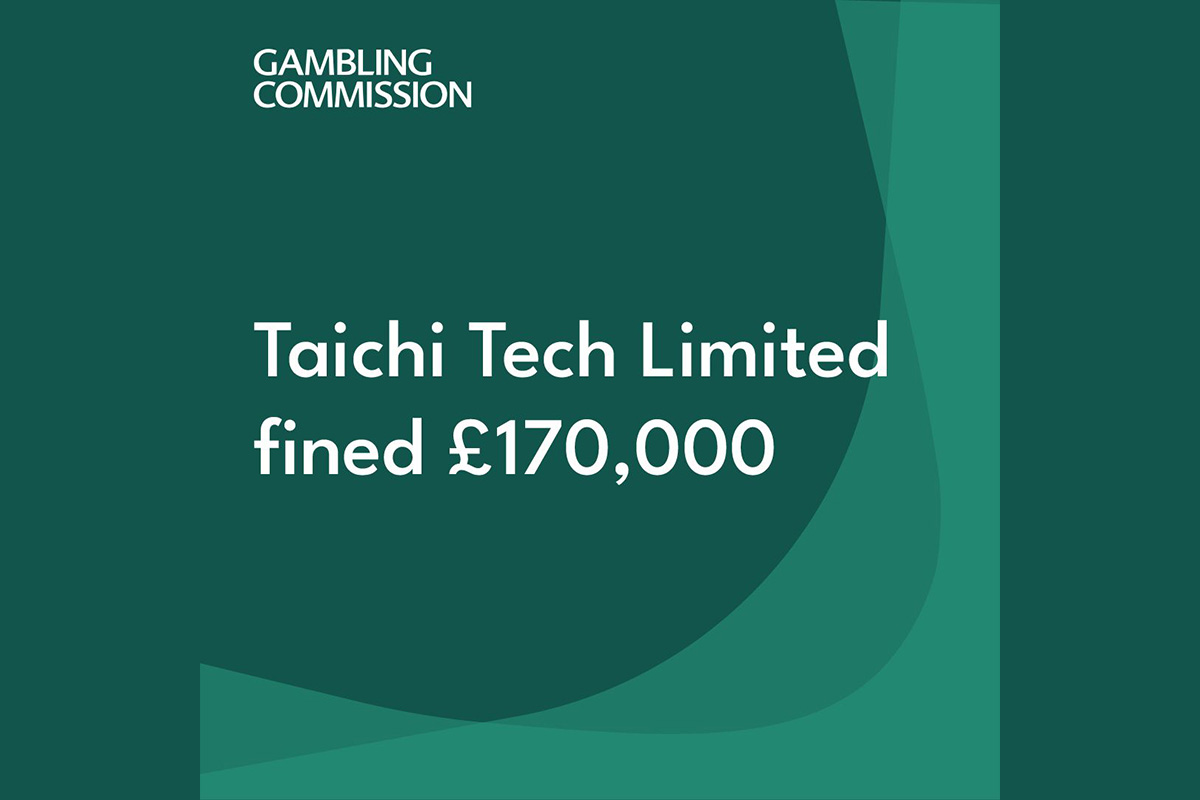
An online gambling business has been fined £170,000 by the UK Gambling Commission (UKGC) for regulatory failures including the use of unfair terms and conditions.
Taichi Tech Limited – trading as Fafabet – will also have to undergo a third-party audit to ensure it is effectively implementing its anti-money laundering and safer gambling policies, procedures and controls.
A Commission investigation revealed Taichi Tech Limited had stated that: “Fafabet have the right at their own discretion to close accounts or forfeit winnings” within their bonus terms for new casino promotions.
The Gambling Commission’s investigation concluded that Taichi Tech Limited breached the fair and open licensing condition by including a discretionary term allowing the operator to close customer accounts or forfeit winnings without clear justification. Such terms lack transparency and may lead to unfair outcomes for consumers.
The Consumer Rights Act 2015 (CRA) is the general consumer protection legislation, and it is explicitly referenced within the Licence Conditions and Codes of Practice (LCCP) that gambling companies must follow. The LCCP requires licensees to ensure that their terms and practices are fair, clear, and do not breach consumer protection law. Operators must therefore have regard to the CRA as part of their overall compliance obligations under the LCCP.
The investigation also found failures relating to anti-money laundering and social responsibility breaches.
Examples included:
• some customers were able to gamble large sums within a short period of time, despite the operator holding limited customer information
• in certain cases, individuals exhibiting potential markers of harm — such as high-velocity spending over short periods — received insufficient customer interaction from the operator
• where safer gambling emails were sent but not acknowledged by the customer and concerning behaviour continued, there was no further follow-up or intervention by the operator.
John Pierce, Director of Enforcement and Intelligence at the Gambling Commission, said: “We expect all operators — regardless of their size or customer base — to comply with consumer protection legislation and ensure their terms and conditions meet regulatory standards.
“Licensed operators must ensure their terms are clear, fair, and transparent, so customers fully understand what to expect.”
He added that the Commission’s assessment identified deficiencies in the operator’s social responsibility and anti-money laundering controls, including failures to effectively manage risk and implement adequate consumer protection measures.
The operator has acknowledged that it previously fell short of the standards expected by the Commission and has since taken steps to address these shortcomings. As part of the regulatory outcome, the operator is required to commission an independent third-party audit to provide assurance of ongoing compliance with all relevant regulatory requirements.
The post Taichi Tech Limited Fined £170,000 for Unfair Terms and Conditions appeared first on European Gaming Industry News.
Central Europe
Turnover of Legal Gambling Market in Hungary Increases
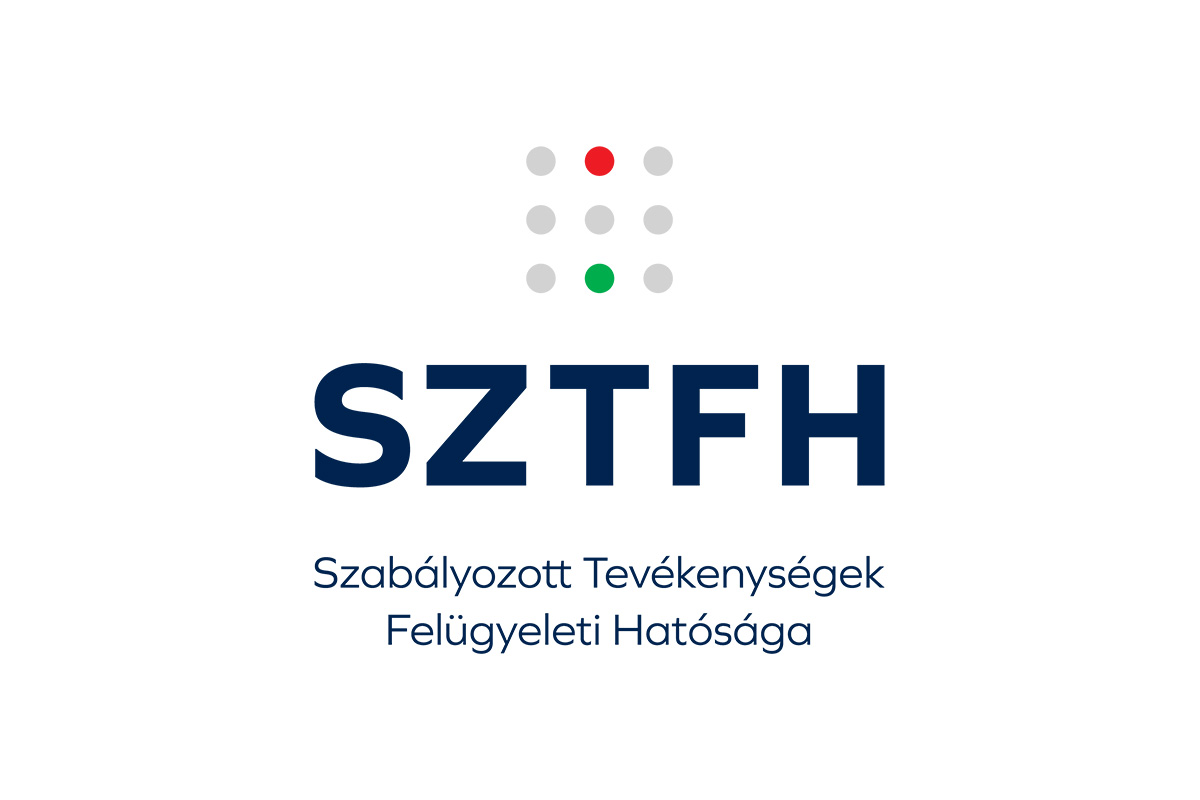
The Regulated Activities Supervisory Authority (SZTFH) has announced that the turnover of the legal gambling market in Hungary has increased.
The SZTFH and its predecessor have been blocking illegal gambling websites since 2014, preventing them from being accessible to Hungarian players. Thanks to the more than two thousand blockings ordered so far in 2024 and 2025, the traffic and turnover of the legal market is sharply increasing compared to the total market, which can be considered a significant improvement compared to the illegal market presence in previous years.
One of the main goals of the SZTFH is to take action against websites offering illegal online gambling that are not licensed in Hungary and the prohibited advertising sites that promote them, and to whitewash the Hungarian online gambling market. In the past two years, several legislative changes have come into force that have resulted in the acceleration and extension of the blocking procedure to advertising and contributing sites, and have created the opportunity to track and immediately block illegal sites that are constantly jumping to new domain names every day in order to evade the authority’s measures. Thanks to the change in the legal environment and the intensive action of the Authority, the number of visits to illegal gambling sites has now decreased significantly.
In the case of services offered by organisers who are not licensed to organise gambling in Hungary, the Authority has no possibility to oblige the gambling organiser to comply with the guarantee rules protecting the interests of the players, and the claim for the payment of the prize cannot be enforced before a Hungarian court. Gambling organisers who are not licensed by the Authority also violate the interests of the Hungarian State in the economic activity of organising and operating gambling. In addition to the above, by not joining the player protection register kept by the Authority, which prevents players who have been excluded from gambling voluntarily or by a court from participating in gambling, they also constitute an obstacle to the effective enforcement of goals related to player protection.
The SZTFH is committed to the elimination of illegal gambling and the whitening and increasing the competitiveness of the Hungarian gambling market in order to protect the interests of Hungarian players, and therefore will continue its intensive blocking activities with great effort and the use of innovative solutions in the future. Players can find out about the gambling organizers licensed in Hungary and the illegal sites blocked by the Authority on the Authority’s website.
The post Turnover of Legal Gambling Market in Hungary Increases appeared first on European Gaming Industry News.
Compliance Updates
MGA Signs MoU with MFSA
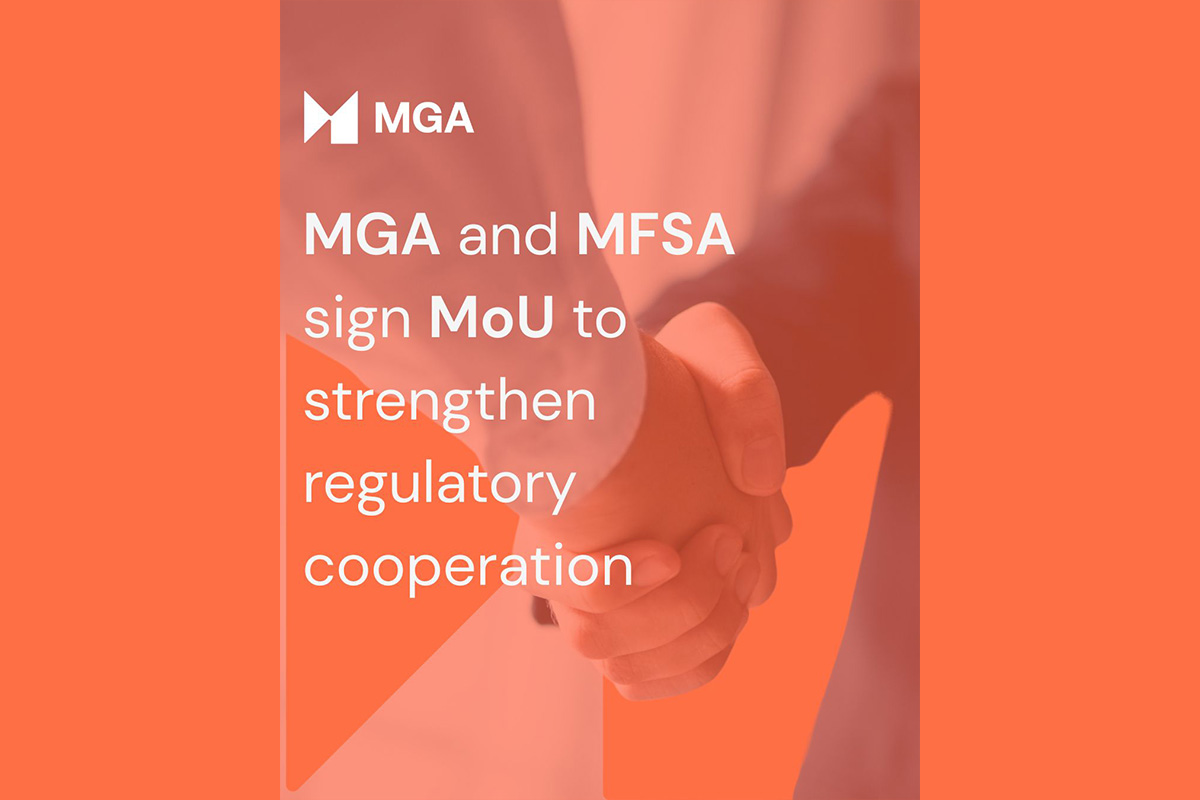
The Malta Gaming Authority (MGA) had signed a Memorandum of Understanding (MoU) with the Malta Financial Services Authority (MFSA) to enhance the collaboration and reinforcing the long-standing relationship between the two regulatory bodies.
This agreement complements an existing multi-party MoU between the Sanctions Monitoring Board (SMB), the Financial Intelligence Analysis Unit (FIAU), the MFSA and the MGA, which remains in force and governs cooperation in areas related to anti-money laundering, the financing of terrorism and the proliferation of weapons of mass destruction.
While the multi-party MoU continues to provide a robust basis for coordination in these specific areas, the MGA and the MFSA identified the need for a separate bilateral agreement to govern their broader relationship. The newly signed MoU sets out a structure for closer cooperation in areas of mutual regulatory interest, with the aim of supporting each authority in the effective discharge of its respective functions.
In addition, the MoU includes provisions relating to training and education, with the aim of equipping both authorities with the necessary skills and knowledge in areas where there may be regulatory overlap. This commitment to capacity building is intended to strengthen institutional competencies and support the overall effectiveness of the respective regulatory frameworks.
MGA CEO Charles Mizzi said: “This agreement marks another step forward in our commitment to strengthening inter-agency collaboration. The relationship between the MGA and the MFSA is an important one, and through this MoU we are not only enhancing the exchange of information but also fostering a shared commitment to high regulatory standards and professional development.”
MFSA CEO Kenneth Farrugia said: “The MoU that the MFSA entered into with the MGA is a reflection of our commitment and dedicated efforts to strengthen ties with other local authorities, as we continue to recognise the value of inter-institutional collaboration. This agreement enhances our mutual cooperation on due diligence and enforcement, which is essential in view of the similar players in the respective industries that we regulate and serve. The MoU itself goes beyond the exchange of good practice and intelligence, as it also focuses on the upskilling of our supervisors who are instrumental to the daily operations of both authorities.”
The post MGA Signs MoU with MFSA appeared first on European Gaming Industry News.
-

 AGCO7 days ago
AGCO7 days agoAGCO Fines Great Canadian Casino Resort Toronto $350,000 for Serious Regulatory Violations Linked to Impromptu After-Party on Gaming Floor
-

 Africa7 days ago
Africa7 days agoALA Hosted Seminar on Artificial Intelligence and Cybersecurity
-

 Canada7 days ago
Canada7 days agoIGT and Atlantic Lottery Sign Eight-Year Video Lottery Central System Technology Agreement
-

 Africa6 days ago
Africa6 days agoDRC Signs MoU for Public-Private Partnership with Burundi’s East African General Trade Company
-

 First7 days ago
First7 days agoFIRST and Genius Sports Extend Landmark Data Partnership, Powering Continued Growth
-

 Blokotech7 days ago
Blokotech7 days agoBlokotech unveils Cristian Tonanti as new Casino Partnership Manager
-

 Brazil7 days ago
Brazil7 days agoEsportes da Sorte holds forum on “Integrity in Sports” with Ceará and Náutico
-

 Latest News7 days ago
Latest News7 days agoUnlock Top-Tier Deals and Careers: Parimatch joins iGB L!VE 2025




